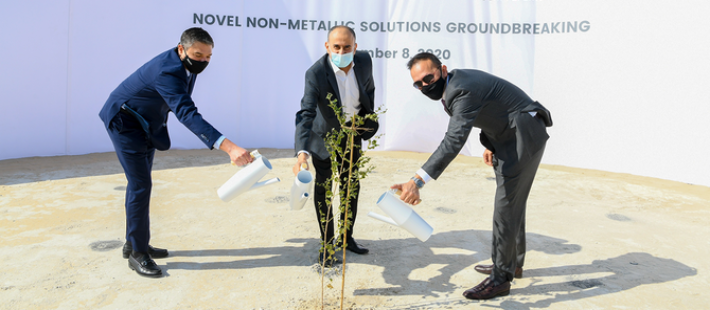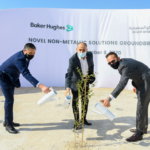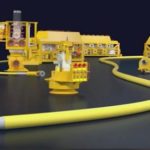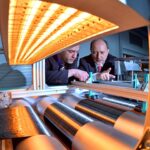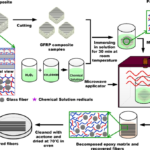A new 50/50 joint venture for the development and production of non-metallic solutions for applications in the energy, oil & gas sector has been established between the Saudi oil group Aramco and the American Baker Hughes, a leading global petroleum service provider.
Novel Non-Metallic Solutions Manufacturing
The new company will be called Novel Non-Metallic Solutions Manufacturing (Novel). Aramco and Baker Hughes will develop and commercialize new systems for the petroleum industry based on non-metallic materials. The project will start with pipeline elements in fiber-reinforced thermoplastic composites.
These materials are:
- lightweight
- corrosion-resistant
- easy to install
- easy to maintain
- with a low replacement rate
Where Novel’s is being developed
Novel’s new facility is placed and developed at King Salman Energy Park (SPARK), in the Kingdom’s Eastern Province. SPARK is a 50-square-kilometer energy city megaproject that will stance Saudi Arabia as a global energy, industrial, and technology hub. At first, the facility will produce onshore non-metallic pipelines, including reinforced thermoplastic pipes (RTP), from composite materials.
The partnership is part of a broader strategic project by Aramco
This agreement which includes:
- Search for new opportunities in oil-based products
- Growth of its commercial ecosystem
- Promotion of internal investments
Aramco’s senior vice president for technical services, Ahmad Al-Sa’adi said: “Non-metallic products are reshaping the industries and products we all depend on because they are more reliable, cost effective, and offer sustainability benefits. The partnership with Baker Hughes reinforces our commitment to expanding the use of innovative non-metallic materials in our operations to drive efficiency and reduce maintenance and replacement costs, while also positively impacting the Kingdom’s economic development through job creation and local expertise.”
Neil Saunders, executive vice president for oilfield equipment at Baker Hughes, said “Aramco’s vision to expand its product development in the region aligns with our vision to support innovation and manufacturing in Saudi Arabia.”
Previous studies on thermoplastic matrix composite materials applied in the oil & gas sector
Last year, Baker Hughes signed an agreement with Solvay to study the implementation of thermoplastic matrix composite materials in flexible pipes and connectors (risers) used in the oil & gas sector. According to the two partners, thermoplastic composites allow to develop lightweight and flexible risers for drilling in water ‘ultra-deep’, with lower total costs – also considering the installation and connection – compared to conventional technologies.
Conservation is also simplified because the composites are not subject to corrosion and ensure superior fatigue resistance in the harsh conditions of offshore installations.
 |
Subscribe now to our quarterly Compositi newsletter
|
Source: ARABNEWS and Polimerica


